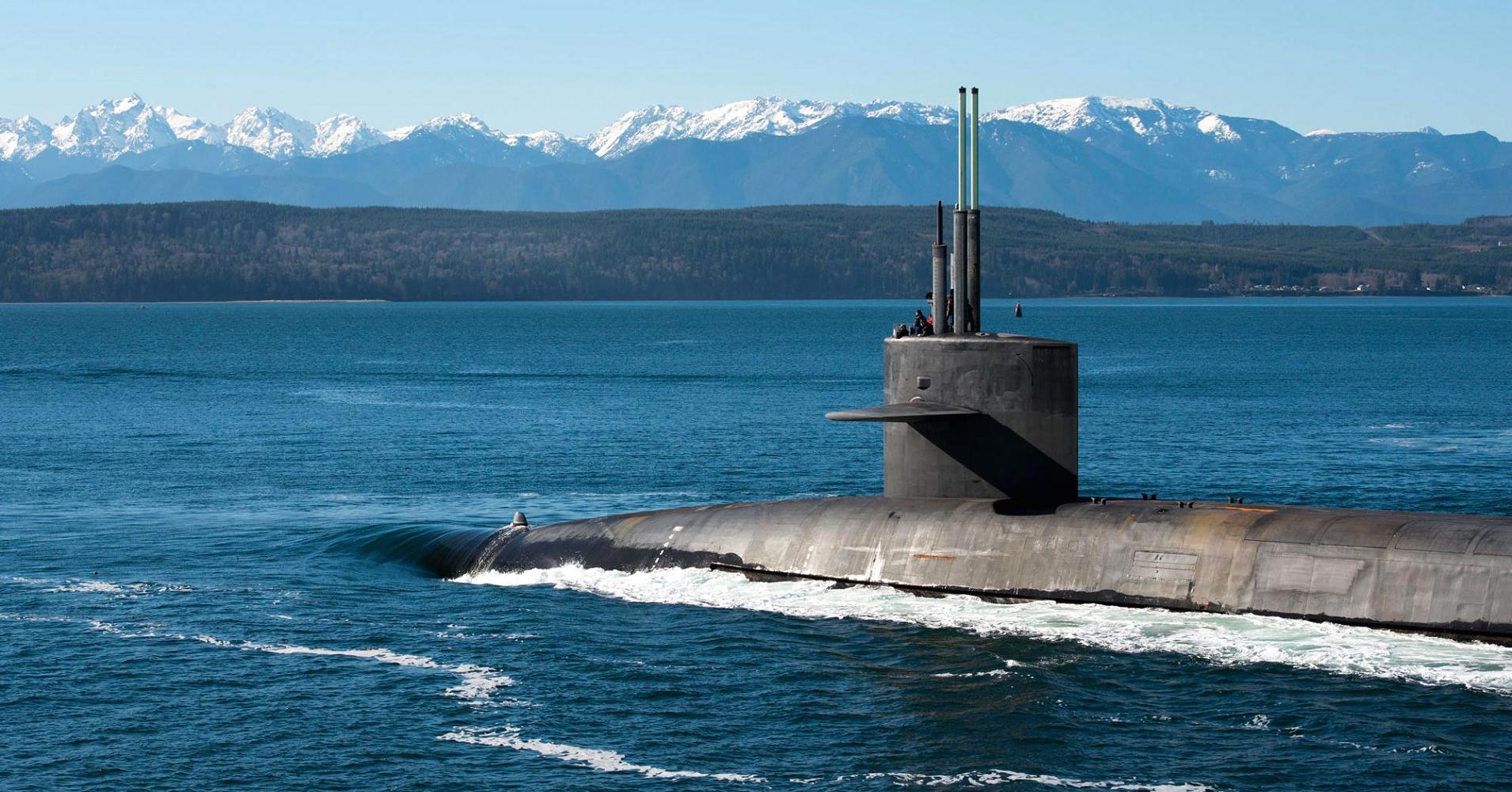
Less than 30 miles from the Russian consulate in Seattle, closed by President Donald Trump on Monday, is what is believed to be the largest arsenal of nuclear weapons in the United States.
And it is guarded by dolphins.
Trump ordered the closure of the consulate as part of a broader move against Russian diplomats and intelligence officials Monday.
Senior administration officials who declined to be named said that the president ordered the expulsion of 60 Russians from the United States. White House press secretary Sarah Huckabee Sanders later confirmed the move to kick out dozens of Russian officers, as well as the closure of the Seattle consulate.
In its rationale for the closure, the White House specifically cited the Seattle consulate’s proximity to the Kitsap-Bangor submarine base and facilities belonging to major defense contractor Boeing.
When asked whether the U.S. had observed Russian spying on the crucial naval base, officials gave mixed signals.
“These actions are not designated towards any particular or individual effort of collection by the Russian government,” one senior official said. “This is a holistic look at the Russian government’s collection capabilities in the U.S. and the consulate Seattle is just a particular location that has been designated.”
Another official said that the Seattle consulate serves a role in Russia’s intelligence collection in the U.S., but would not elaborate on any specific activities.
“We assess the Russian consulate in Seattle to be part of this broader problem of an unacceptably high number of Russian intelligence operatives in the United States,” the official said.
“We think it sends a very clear signal, particularly since on the West Coast the Russians will have a degraded capability with regards to spying on our citizens,” the official said.
Experts believe the base is home to the biggest concentration of nuclear weapons in the U.S., if not the world.
The Pentagon and U.S. Navy did not respond immediately to CNBC’s request for comment.
In addition to its storage of strategic nuclear weapons, Kitsap-Bangor also serves as the homeport for more than half of the Navy’s ballistic submarines — another significant interest to the Russian government. These stealthy Ohio-class submarines are undetectable launch pads for intercontinental missiles.
What’s more, the number of submarines and other vessels berthed at Kitsap-Bangor makes the installation the third largest fleet concentration in the United States.
Unique sentries from the Navy’s Marine Mammal Program also help guard the base near Washington’s Puget Sound.
The installation uses Navy-trained dolphins to defend against intruders, identify mines and to recover objects. Since the 1960s, the U.S. Navy has used dolphins and sea lions to work with sailors and Marines.
The closure of the Russian consulate and the expulsion of 60 Russians from the United States comes on the heels of a nerve agent attack earlier this month on Sergei Skripal, a former Russian double agent who worked for the U.K.’s secret service, and his daughter, Yulia.
“This was a reckless attempt by the [Russian] government to murder a British citizen and his daughter on British soil with a military-grade nerve agent. It cannot go unanswered,” said a senior administration official, speaking on the condition of anonymity.
“To the Russian government we say, when you attack our friends, you will face serious consequences,” the official added.
Meanwhile, Moscow has denied any involvement and says Britain is orchestrating an anti-Russia campaign.
In a coordinated effort, a total of 14 EU member states said they would expel Russian diplomats, according to European Council President Donald Tusk, including Germany, France and Poland.

